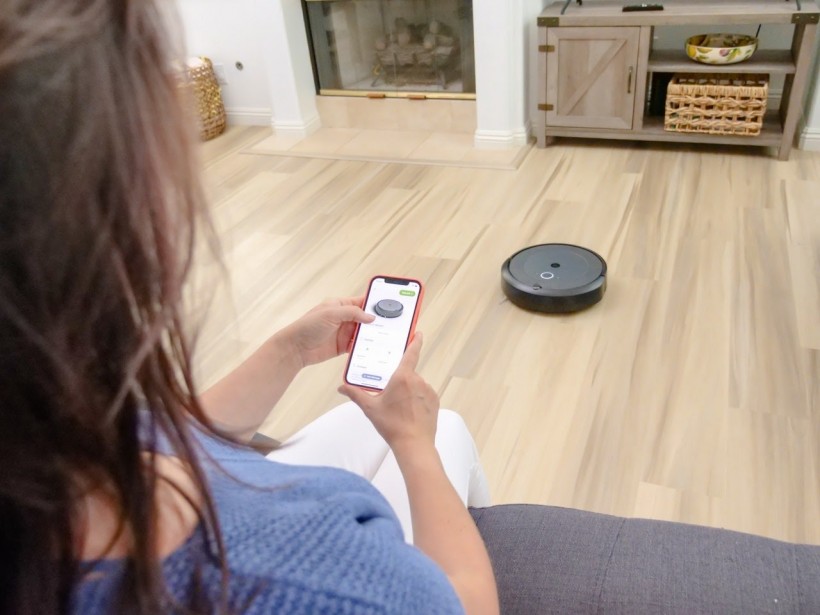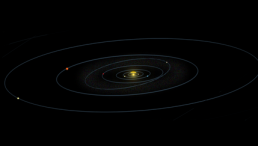
The progress of artificial intelligence integrates its way into people's lives and will continue to set changes in the future, driving several big tech firms on the track to further augment workforce capabilities to increase both productivity and market identity.
How Does AI Affect Our Daily Lives?
Throughout the last few decades, scientists have made significant progress in artificial intelligence. Many people associate AI with science fiction robots, but in reality, AI streamlines and improves several day-to-day agenda, allowing us to accomplish more things in a shortened time.
As we live in an increasingly technological world, AI plays an increasingly important role in our daily lives, from commuting to shopping to web browsing. AI's software development is a massive move in the industry, and the technology is constantly improving.
Tech giants and pretty much every industry globally acknowledge and integrate AI into their products or services. Billionaire Elon Musk even predicted that AI would outsmart humans one day, and it's only a matter of time.
"Just the nature of the AI that they're building is one that crushes all humans at all games," Musk said in an interview.
Contrastingly, AI consultant Catherine Breslin says, "Projecting into an imagined future distracts from how technology is used right now. AI has done some amazing things in recent years."
Social Media
Facebook, Instagram, and Twitter use artificial intelligence to advertise to users more effectively. Most social networks allow marketers to run massive paid ads, and without AI, marketers would spend a lot of time creating and distributing content for each campaign.
These contents are what you see when you open your social media accounts. Therefore, artificial intelligence and social media will become more prevalent in people's lives in the coming years, which will lead to more active intersections between the two.
Reports show that AI already makes decisions for you. Take Spotify, for example, with their recommended songs and Facebook with their post algorithms.
On the other hand, Google has established principles for "responsible AI," which they apply to their technologies. In designing these technologies, Google considers fairness, privacy, and security issues.
Digital Assistants
Digital assistants use artificial intelligence to understand human language and respond with natural speech to evoke emotions from you. As technology advances, digital assistants will understand natural speech and complete sentences you speak.
Some popular instances where AI-based digital assistants are put to good use is when you use Amazon's Alexa, where you can avail of the Echo-only plan to expand Alexa utilities. Not just that, digital assistants are also part of the workforce now.
Earlier this year, recent updates about Amazon's Alexa showed that the virtual assistant can join virtual meetings now.
Moreover, recent developments say Apple will do the same with its Siri-only voice plan to be launched on iOS 15.2.
AI for Businesses
There is no doubt that artificial intelligence will cause our workforce to further improve and evolve. Current alarmist headlines emphasize the loss of jobs to machines, but the real challenge on hand will be for individuals to find their calling with new responsibilities that require their unique traits.
An accountancy giant PwC created an analysis in 2018 showing reports that it has already been changing the landscape of various industries. They were predicting that in the next 20 years, Artificial Intelligence (AI) will result in as many jobs being created as being displaced.
"Our analysis suggests the same will be true of AI, robots, and related technologies, but the distribution of jobs across sectors will shift considerably in the process," said PwC.
By automating repetitive or dangerous tasks, AI frees employees to do work they are better suited for, involving creativity and empathy, among other qualities. When people are engaged in challenging and rewarding work, they are more likely to be happy and satisfied with their jobs.
How Is Artificial Intelligence Changing the World?
In essence, Artificial Intelligence uses computer science programming to mimic human thinking and behavior by analyzing data and surroundings, anticipating problems, and learning by itself or adapting to different tasks.
AI enables many programs and services to improve the quality of people's lives, such as allowing them to connect with friends and services for convenience and with personalized recommendations.
For instance, with design, everyone can now just edit their images on the go. An AI-based photo editor or background remover using advanced computer vision algorithms can now automatically change image backgrounds or add effects with just one click. This was unheard of just a few years ago.
Then in search engines, one of the most common uses of AI is to create ranking algorithms. While much human effort still goes into creating and adjusting these algorithms, many search engines also use AI to improve them.
Chatbots are another way that AI plays a vital role in online shopping. These bots are available 24/7 and can answer questions and offer solutions to your problems.
AI-based systems are changing the way visuals are produced and how you search for anything online. But more than that, it is changing how consumers interact with products online.
Because of this, individuals, freelancers, startup businesses, and even fortune 500 companies can use AI to their advantage when it comes to augmenting workflow productivity and customer engagement in their industries.
Will Artificial Intelligence Help Humanity?
The technology to assist you with your daily tasks could be powered by artificial intelligence, though you might not recognize it. If you see a targeted ad on social media, it was most likely generated by AI. When you ask your digital assistant a question, AI allows the device to search the web and provide a response.
The widespread use of artificial intelligence could usher in a second industrial revolution. Therefore, artificial intelligence has already had a profound impact on our daily lives, and it will continue changing the lives of many in the future.
* This is a contributed article and this content does not necessarily represent the views of sciencetimes.com












![Tidal Storm Makes Exoplanet 'Literally Glows at Optical Wavelength' [Study]](https://1721181113.rsc.cdn77.org/data/thumbs/full/53240/258/146/50/40/tidal-storm-makes-exoplanet-literally-glows-at-optical-wavelength-study.jpeg)

